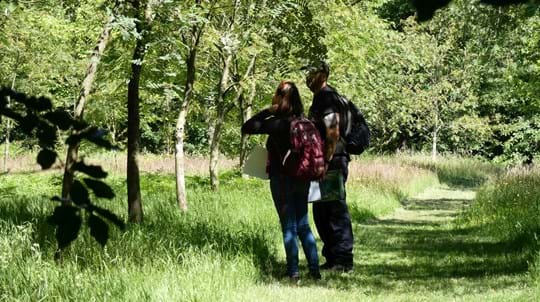
About us

Forest Research
The UK was the centre of focus for international plant health in recent weeks, as the world’s leading authorities on plant health and biosecurity came together for the world’s first ever International Plant Health Conference (IPHC), co-organised by the Food and Agriculture Organization (FAO) of the United Nations, the Secretariat of the International Plant Protection Convention (IPPC) and Defra.
This three-day event greeted over 500 delegates from more than 70 nations to address current and future plant health challenges, including the impacts of climate change, food security, environmental protection, facilitating safe trade, and new pest and disease pathways, such as e-commerce. Delegates shared knowledge and discussed global scientific, technical and regulatory issues, alongside actions to tackle these existential threats to our society, economy and environment.
The organisers stated that ‘The Food and Agriculture Organization (FAO) of the United Nations estimates that each year up to 40 percent of global crop production is lost to plant diseases, costing the agricultural trade over USD 220 billion, whilst invasive insects cause losses of at least USD 70 billion. The risks to food security, international trade, biodiversity and our precious natural environment as a result of current and future outbreaks are all too real. Strengthening global standards of biosecurity, applying the IPPC and international plant health standards, as well as fostering greater international collaboration and raising public awareness and engagement with these challenges will be paramount to safeguard the global economy and environment for generations to come.’
Colleagues from across the Observatree partnership attended the conference and participated in a number of presentations, formal debates, posters and informal discussions that included information on Observatree, tree health and the role of citizen science. The Observatree Signs and Symptoms Calendar proved very popular with the delegates and many chose to take a copy away with them.
There were two common messages resonating throughout many of the conference presentations. The first was the need for increased awareness raising of plant health issues in most of the countries represented. The second key message was the importance of accurate, accessible, up to date information from surveillance activities to support control or management methods.
Where Observatree volunteers, partners and Associates support these activities, many other countries around the world rely solely on professional surveys. And whilst some tree health citizen science data collection tools do exist outside of the UK, pest or disease data are not always verified or used alongside official surveillance data. The model of Observatree recruiting and training a volunteer network to support official surveillance activities continues to offer a different approach that impresses many international audiences.
The conference also highlighted the development of different methods and technologies and how these can help to prevent the establishment, spread or the impact of some of the pests or diseases.. But most methods are best deployed on small pest or disease populations and early warning, and a vigilant society, still have vital roles to play. The work of Observatree continues to be important and this can be further enhanced as we continue to expand our network of Associates and work with other groups and organisations. And perhaps my presentation about the project and the various discussions at the conference involving Observatree colleagues will lead to further international interest in our work.